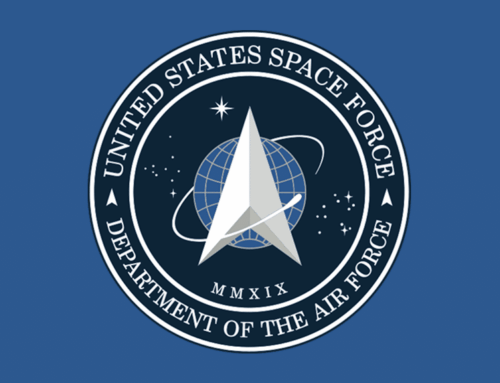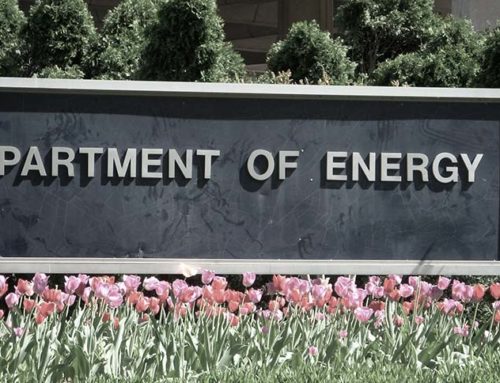Incredibly, with next year’s defense budget request hovering at about $265 billion, the Pentagon is preparing to reward the top executives of two of the nation’s biggest defense contractors with a whopping $16.2 million merger bonus.
As reported in TC
Incredibly, with next year’s defense budget request hovering at about $265 billion, the Pentagon is preparing to reward the top executives of two of the nation’s biggest defense contractors with a whopping $16.2 million merger bonus.
As reported in TC
Incredibly, with next year’s defense budget request hovering at about $265 billion, the Pentagon is preparing to reward the top executives of two of the nation’s biggest defense contractors with a whopping $16.2 million merger bonus.
As reported in TC
Incredibly, with next year’s defense budget request hovering at about $265 billion, the Pentagon is preparing to reward the top executives of two of the nation’s biggest defense contractors with a whopping $16.2 million merger bonus.
As reported in TC
Incredibly, with next year’s defense budget request hovering at about $265 billion, the Pentagon is preparing to reward the top executives of two of the nation’s biggest defense contractors with a whopping $16.2 million merger bonus.
As reported in TC
Incredibly, with next year’s defense budget request hovering at about $265 billion, the Pentagon is preparing to reward the top executives of two of the nation’s biggest defense contractors with a whopping $16.2 million merger bonus.
As reported in TC
Incredibly, with next year’s defense budget request hovering at about $265 billion, the Pentagon is preparing to reward the top executives of two of the nation’s biggest defense contractors with a whopping $16.2 million merger bonus.
As reported in TC
Incredibly, with next year’s defense budget request hovering at about $265 billion, the Pentagon is preparing to reward the top executives of two of the nation’s biggest defense contractors with a whopping $16.2 million merger bonus.
As reported in TC$’s April report Pentagon Follies, the bonus would reward top executives at Martin Marietta and Lockheed Aviation for their recent merger into Lockheed-Martin. Never mind that a recent report by the GAO showed that executive salaries for top defense contractors averaged $3.6 million in 1993.
Executives from Lockheed-Martin claim that the merger will save the Pentagon $1 billion over the next five years and that there is nothing special or unusual about these bonuses. In fact, the merger will also benefit Lockheed-Martin – why should taxpayers pay company executives millions for doing something they would have done anyway?
Representatives Bernie Sanders (I-VT) and Peter DeFazio (D-OR) passed into law an amendment to the FY96 Defense Appropriations bill specifically prohibiting the use of taxpayer funds for this kind of handout, but Pentagon officials have decided to circumvent the law by using taxpayer funds appropriated before 1996.
Members of Congress are justifiably outraged by the Pentagon’s “money for nothing” policy.
Calling the bonus payments “twisted logic”, Sanders also called into question the Pentagon’s current policy of compensating defense contractors for the “costs” of corporate mergers. As if $16.2 million wasn’t enough, Lockheed-Martin is in the process of applying for “re-structuring” funds of up to $1.8 billion. The company has already submitted $965 million worth of requests.
Representatives Sanders and DeFazio have been joined by Rep. Carolyn Maloney (D-NY) in renewed efforts to put a stop to this taxpayer outrage. “Working people don’t get massive bonuses from the federal government,” said DeFazio. “Why should CEOs at defense companies?”
TCS Invades the Internet
Taxpayers for Common Sense launched its world wide web site this week at http://www.taxpayer.net. Visitors to the site can read the organization’s reports, catch up on current campaigns, and receive membership information. In addition, the site provides links to more than 50 other research and investigative sites.
#39;s April report Pentagon Follies, the bonus would reward top executives at Martin Marietta and Lockheed Aviation for their recent merger into Lockheed-Martin. Never mind that a recent report by the GAO showed that executive salaries for top defense contractors averaged $3.6 million in 1993.
Executives from Lockheed-Martin claim that the merger will save the Pentagon $1 billion over the next five years and that there is nothing special or unusual about these bonuses. In fact, the merger will also benefit Lockheed-Martin – why should taxpayers pay company executives millions for doing something they would have done anyway?
Representatives Bernie Sanders (I-VT) and Peter DeFazio (D-OR) passed into law an amendment to the FY96 Defense Appropriations bill specifically prohibiting the use of taxpayer funds for this kind of handout, but Pentagon officials have decided to circumvent the law by using taxpayer funds appropriated before 1996.
Members of Congress are justifiably outraged by the Pentagon’s “money for nothing” policy.
Calling the bonus payments “twisted logic”, Sanders also called into question the Pentagon’s current policy of compensating defense contractors for the “costs” of corporate mergers. As if $16.2 million wasn’t enough, Lockheed-Martin is in the process of applying for “re-structuring” funds of up to $1.8 billion. The company has already submitted $965 million worth of requests.
Representatives Sanders and DeFazio have been joined by Rep. Carolyn Maloney (D-NY) in renewed efforts to put a stop to this taxpayer outrage. “Working people don’t get massive bonuses from the federal government,” said DeFazio. “Why should CEOs at defense companies?”
TCS Invades the Internet
Taxpayers for Common Sense launched its world wide web site this week at http://www.taxpayer.net. Visitors to the site can read the organization’s reports, catch up on current campaigns, and receive membership information. In addition, the site provides links to more than 50 other research and investigative sites.
#39;s April report Pentagon Follies, the bonus would reward top executives at Martin Marietta and Lockheed Aviation for their recent merger into Lockheed-Martin. Never mind that a recent report by the GAO showed that executive salaries for top defense contractors averaged $3.6 million in 1993.
Executives from Lockheed-Martin claim that the merger will save the Pentagon $1 billion over the next five years and that there is nothing special or unusual about these bonuses. In fact, the merger will also benefit Lockheed-Martin – why should taxpayers pay company executives millions for doing something they would have done anyway?
Representatives Bernie Sanders (I-VT) and Peter DeFazio (D-OR) passed into law an amendment to the FY96 Defense Appropriations bill specifically prohibiting the use of taxpayer funds for this kind of handout, but Pentagon officials have decided to circumvent the law by using taxpayer funds appropriated before 1996.
Members of Congress are justifiably outraged by the Pentagon’s “money for nothing” policy.
Calling the bonus payments “twisted logic”, Sanders also called into question the Pentagon’s current policy of compensating defense contractors for the “costs” of corporate mergers. As if $16.2 million wasn’t enough, Lockheed-Martin is in the process of applying for “re-structuring” funds of up to $1.8 billion. The company has already submitted $965 million worth of requests.
Representatives Sanders and DeFazio have been joined by Rep. Carolyn Maloney (D-NY) in renewed efforts to put a stop to this taxpayer outrage. “Working people don’t get massive bonuses from the federal government,” said DeFazio. “Why should CEOs at defense companies?”
TCS Invades the Internet
Taxpayers for Common Sense launched its world wide web site this week at http://www.taxpayer.net. Visitors to the site can read the organization’s reports, catch up on current campaigns, and receive membership information. In addition, the site provides links to more than 50 other research and investigative sites.
#39;s April report Pentagon Follies, the bonus would reward top executives at Martin Marietta and Lockheed Aviation for their recent merger into Lockheed-Martin. Never mind that a recent report by the GAO showed that executive salaries for top defense contractors averaged $3.6 million in 1993.
Executives from Lockheed-Martin claim that the merger will save the Pentagon $1 billion over the next five years and that there is nothing special or unusual about these bonuses. In fact, the merger will also benefit Lockheed-Martin – why should taxpayers pay company executives millions for doing something they would have done anyway?
Representatives Bernie Sanders (I-VT) and Peter DeFazio (D-OR) passed into law an amendment to the FY96 Defense Appropriations bill specifically prohibiting the use of taxpayer funds for this kind of handout, but Pentagon officials have decided to circumvent the law by using taxpayer funds appropriated before 1996.
Members of Congress are justifiably outraged by the Pentagon’s “money for nothing” policy.
Calling the bonus payments “twisted logic”, Sanders also called into question the Pentagon’s current policy of compensating defense contractors for the “costs” of corporate mergers. As if $16.2 million wasn’t enough, Lockheed-Martin is in the process of applying for “re-structuring” funds of up to $1.8 billion. The company has already submitted $965 million worth of requests.
Representatives Sanders and DeFazio have been joined by Rep. Carolyn Maloney (D-NY) in renewed efforts to put a stop to this taxpayer outrage. “Working people don’t get massive bonuses from the federal government,” said DeFazio. “Why should CEOs at defense companies?”
TCS Invades the Internet
Taxpayers for Common Sense launched its world wide web site this week at http://www.taxpayer.net. Visitors to the site can read the organization’s reports, catch up on current campaigns, and receive membership information. In addition, the site provides links to more than 50 other research and investigative sites.
#39;s April report Pentagon Follies, the bonus would reward top executives at Martin Marietta and Lockheed Aviation for their recent merger into Lockheed-Martin. Never mind that a recent report by the GAO showed that executive salaries for top defense contractors averaged $3.6 million in 1993.
Executives from Lockheed-Martin claim that the merger will save the Pentagon $1 billion over the next five years and that there is nothing special or unusual about these bonuses. In fact, the merger will also benefit Lockheed-Martin – why should taxpayers pay company executives millions for doing something they would have done anyway?
Representatives Bernie Sanders (I-VT) and Peter DeFazio (D-OR) passed into law an amendment to the FY96 Defense Appropriations bill specifically prohibiting the use of taxpayer funds for this kind of handout, but Pentagon officials have decided to circumvent the law by using taxpayer funds appropriated before 1996.
Members of Congress are justifiably outraged by the Pentagon’s “money for nothing” policy.
Calling the bonus payments “twisted logic”, Sanders also called into question the Pentagon’s current policy of compensating defense contractors for the “costs” of corporate mergers. As if $16.2 million wasn’t enough, Lockheed-Martin is in the process of applying for “re-structuring” funds of up to $1.8 billion. The company has already submitted $965 million worth of requests.
Representatives Sanders and DeFazio have been joined by Rep. Carolyn Maloney (D-NY) in renewed efforts to put a stop to this taxpayer outrage. “Working people don’t get massive bonuses from the federal government,” said DeFazio. “Why should CEOs at defense companies?”
TCS Invades the Internet
Taxpayers for Common Sense launched its world wide web site this week at http://www.taxpayer.net. Visitors to the site can read the organization’s reports, catch up on current campaigns, and receive membership information. In addition, the site provides links to more than 50 other research and investigative sites.
#39;s April report Pentagon Follies, the bonus would reward top executives at Martin Marietta and Lockheed Aviation for their recent merger into Lockheed-Martin. Never mind that a recent report by the GAO showed that executive salaries for top defense contractors averaged $3.6 million in 1993.
Executives from Lockheed-Martin claim that the merger will save the Pentagon $1 billion over the next five years and that there is nothing special or unusual about these bonuses. In fact, the merger will also benefit Lockheed-Martin – why should taxpayers pay company executives millions for doing something they would have done anyway?
Representatives Bernie Sanders (I-VT) and Peter DeFazio (D-OR) passed into law an amendment to the FY96 Defense Appropriations bill specifically prohibiting the use of taxpayer funds for this kind of handout, but Pentagon officials have decided to circumvent the law by using taxpayer funds appropriated before 1996.
Members of Congress are justifiably outraged by the Pentagon’s “money for nothing” policy.
Calling the bonus payments “twisted logic”, Sanders also called into question the Pentagon’s current policy of compensating defense contractors for the “costs” of corporate mergers. As if $16.2 million wasn’t enough, Lockheed-Martin is in the process of applying for “re-structuring” funds of up to $1.8 billion. The company has already submitted $965 million worth of requests.
Representatives Sanders and DeFazio have been joined by Rep. Carolyn Maloney (D-NY) in renewed efforts to put a stop to this taxpayer outrage. “Working people don’t get massive bonuses from the federal government,” said DeFazio. “Why should CEOs at defense companies?”
TCS Invades the Internet
Taxpayers for Common Sense launched its world wide web site this week at http://www.taxpayer.net. Visitors to the site can read the organization’s reports, catch up on current campaigns, and receive membership information. In addition, the site provides links to more than 50 other research and investigative sites.
#39;s April report Pentagon Follies, the bonus would reward top executives at Martin Marietta and Lockheed Aviation for their recent merger into Lockheed-Martin. Never mind that a recent report by the GAO showed that executive salaries for top defense contractors averaged $3.6 million in 1993.
Executives from Lockheed-Martin claim that the merger will save the Pentagon $1 billion over the next five years and that there is nothing special or unusual about these bonuses. In fact, the merger will also benefit Lockheed-Martin – why should taxpayers pay company executives millions for doing something they would have done anyway?
Representatives Bernie Sanders (I-VT) and Peter DeFazio (D-OR) passed into law an amendment to the FY96 Defense Appropriations bill specifically prohibiting the use of taxpayer funds for this kind of handout, but Pentagon officials have decided to circumvent the law by using taxpayer funds appropriated before 1996.
Members of Congress are justifiably outraged by the Pentagon’s “money for nothing” policy.
Calling the bonus payments “twisted logic”, Sanders also called into question the Pentagon’s current policy of compensating defense contractors for the “costs” of corporate mergers. As if $16.2 million wasn’t enough, Lockheed-Martin is in the process of applying for “re-structuring” funds of up to $1.8 billion. The company has already submitted $965 million worth of requests.
Representatives Sanders and DeFazio have been joined by Rep. Carolyn Maloney (D-NY) in renewed efforts to put a stop to this taxpayer outrage. “Working people don’t get massive bonuses from the federal government,” said DeFazio. “Why should CEOs at defense companies?”
TCS Invades the Internet
Taxpayers for Common Sense launched its world wide web site this week at http://www.taxpayer.net. Visitors to the site can read the organization’s reports, catch up on current campaigns, and receive membership information. In addition, the site provides links to more than 50 other research and investigative sites.
#39;s April report Pentagon Follies, the bonus would reward top executives at Martin Marietta and Lockheed Aviation for their recent merger into Lockheed-Martin. Never mind that a recent report by the GAO showed that executive salaries for top defense contractors averaged $3.6 million in 1993.
Executives from Lockheed-Martin claim that the merger will save the Pentagon $1 billion over the next five years and that there is nothing special or unusual about these bonuses. In fact, the merger will also benefit Lockheed-Martin – why should taxpayers pay company executives millions for doing something they would have done anyway?
Representatives Bernie Sanders (I-VT) and Peter DeFazio (D-OR) passed into law an amendment to the FY96 Defense Appropriations bill specifically prohibiting the use of taxpayer funds for this kind of handout, but Pentagon officials have decided to circumvent the law by using taxpayer funds appropriated before 1996.
Members of Congress are justifiably outraged by the Pentagon’s “money for nothing” policy.
Calling the bonus payments “twisted logic”, Sanders also called into question the Pentagon’s current policy of compensating defense contractors for the “costs” of corporate mergers. As if $16.2 million wasn’t enough, Lockheed-Martin is in the process of applying for “re-structuring” funds of up to $1.8 billion. The company has already submitted $965 million worth of requests.
Representatives Sanders and DeFazio have been joined by Rep. Carolyn Maloney (D-NY) in renewed efforts to put a stop to this taxpayer outrage. “Working people don’t get massive bonuses from the federal government,” said DeFazio. “Why should CEOs at defense companies?”
TCS Invades the Internet
Taxpayers for Common Sense launched its world wide web site this week at http://www.taxpayer.net. Visitors to the site can read the organization’s reports, catch up on current campaigns, and receive membership information. In addition, the site provides links to more than 50 other research and investigative sites.










